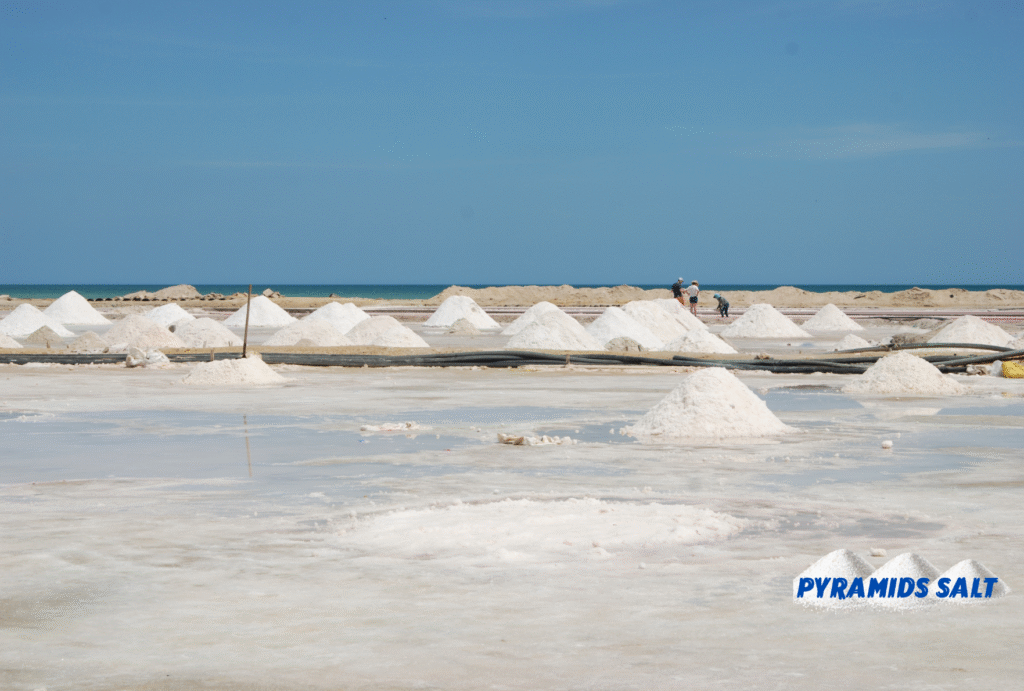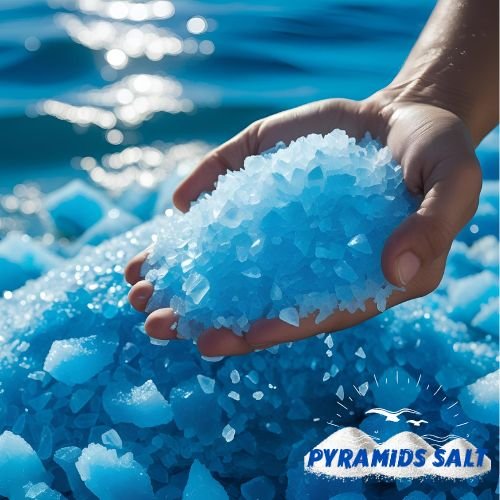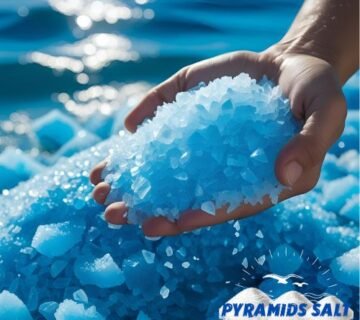Pyramids Salt from Egypt has historical significance, health benefits, affordability, and sustainable harvesting. Pyramids Salt’s quality, cultural significance, and market viability make it a good global import alternative.
For generations, salt—the white gold—has been used to season, preserve, and improve health. Pyramids Salt uses ancient Egyptian methods with modern benefits. This extensive analysis shows why Egyptian salt is the best for cheap global imports.
Significant Egyptian Salt History
Ancient Egyptian Salt Uses
Ancient Egypt relied on salt. The body was dehydrated to prevent decomposition during mummification. Ancient Egyptians valued salt in life and death, as shown by their elaborate funerals. A major commercial product, salt, promoted cross-cultural exchanges.
Salt was preserved and used in religious and daily life. Ancient Egypt revered it for purifying offerings and protecting. Historical uses of salt beyond seasoning show a strong cultural connection to this essential element.
Salt’s Egyptian Cultural Value
Egyptians associated salt with purity and health. Moderate salting increased crop growth and fertility. These associations show the ancient Egyptians’ love for this mineral, making it vital to their society.
This economy used salt currency. This economic importance shows how salt influenced Egyptian civilization through trade and sustenance. The historical importance of salt influences Egyptian cuisine today.
Geographical Benefits of Egyptian Salt
Unique Natural Resources
Egypt’s geography makes high-quality salt production possible. Wide desert expanses near the Mediterranean Sea are ideal for salt collection by evaporation. High-grade salt is extracted from large salt lakes and saline deposits in the Siwa Oasis and Qattara Depression.
The mineral composition of these salt deposits improves its flavor and health benefits, unlike most global salts. Egypt’s traditional salt harvesting preserves purity from source to consumer.
Weather and Harvest
Egypt’s hot, dry climate is ideal for saltmaking. Salt crystal harvesting is accelerated by high evaporation. This climate guarantees pure, mineral-free salt for cooking and health.
The year-round climate allows producers to meet global salt demand. Importers and consumers prefer Pyramids Salt because of its consistent supply and affordability.
Health Benefits of Pyramid Salt
Mine Composition
Magnesium, potassium, and calcium make Pyramids Salt famous. Pyramids Salt has health benefits from natural minerals lost in processed table salt. These minerals aid muscle contraction, neuron function, and electrolyte balance.
Pyramids Salt’s trace minerals may aid hydration, cramping, and nutrient absorption. Pyramids Salt’s natural mineral profile makes it healthier than other salts, appealing to health-conscious consumers and culinary enthusiasts who value flavor and nutrition.
Compared to Table Salt
Comparison of Pyramids Salt to table salt shows nutritional and flavor differences. Refinement and anti-caking chemicals can alter table salt’s taste and health benefits. Simple processing gives Pyramids Salt a stronger flavor and better taste.
Pyramids Salt is additive-free and healthy. Customer awareness of processed food dangers is driving demand for natural options like Pyramids Salt. A healthy lifestyle requires natural, high-quality salt, according to this movement.

Affordable Egyptian sourcing
Cost-effective Pyramid Salt
Global importers save money on Egyptian Pyramids Salt. Abundant natural resources, efficient harvesting, and good weather lower production costs. Pyramids Salt competes internationally because consumers benefit from these discounts.
Pyramids Salt sales rise with demand for natural and organic products. Pyramids Salt’s price attracts quality and wellness-conscious homes and businesses. Consumers want value in today’s economy, so quality and affordability must be balanced.
Global Import Market Effect
Pyramid affordability Salt affects global imports. Egyptian salt producers can meet the rising demand for high-quality salt at competitive prices as international trade grows. This benefits Egyptian producers and lowers premium salt prices.
International trade boosts Egypt’s and importing nations’ economies. Pyramids Salt’s price lets importers offer consumers a unique health and culinary product, expanding their market.
Environmental Sustainability
Sustainable harvesting methods
Recently, salt harvesting has become more environmentally friendly. Pyramids Salt manufacturers in Egypt use eco-friendly methods to reduce environmental impact. Efficiency and sustainability are hallmarks of traditional solar evaporation harvesting.
Use of salt lakes and saline soils conserves ecology. Sustainable methods improve salt quality and the environment, giving consumers a healthy, sustainable product.
Natural Habitat Protection
Preserving natural habitats helps salt harvesting sites’ ecology. Farmers prioritize ecosystem protection during harvesting. Salt lakes and surrounding areas are monitored for ecological health to protect wildlife and plants during harvesting.
Egyptian salt producers preserve nature to promote biodiversity and sustainability. Environmentally conscious consumers who seek responsibly sourced products appreciate this commitment to ecological health.
Conclusion
Finally, Pyramids Salt from Egypt has benefits beyond taste and cooking. Its history, geography, and health benefits make it popular worldwide. Low prices and sustainable harvesting make this high-quality salt ideal for consumers and importers.
Pyramids Salt represents quality, heritage, and responsibility as natural and health-conscious products become more popular. Pyramids Salt improves cooking and supports a sustainable, profitable method that benefits the environment and local communities.

FAQs
What makes Pyramids Salt different from regular table salt?
Pyramids Salt retains its natural minerals, unlike table salt, which is heavily refined and often contains additives. This gives Pyramids Salt a richer flavor and additional health benefits.
How is Pyramids Salt harvested?
Pyramids Salt is primarily harvested using solar evaporation techniques in natural salt lakes, which is an eco-friendly process that preserves the mineral content.
Is Pyramids Salt beneficial for health?
Yes, Pyramids Salt contains essential minerals that can contribute to various bodily functions, making it a healthier alternative to regular table salt.
Why is Pyramids Salt more affordable than other imports?
The low production costs in Egypt, due to abundant natural resources and efficient harvesting methods, enable competitive pricing in the global market.
Are there sustainable practices in place for harvesting Pyramids Salt?
Yes, many producers in Egypt are now adopting sustainable harvesting practices that minimize environmental impact and preserve local ecosystems.





No comment